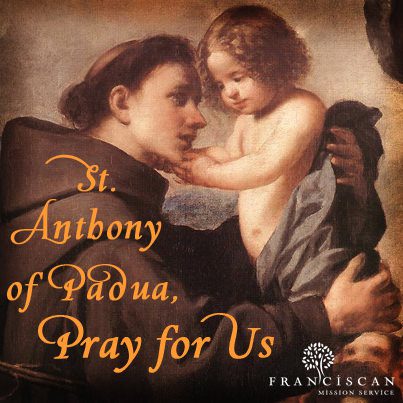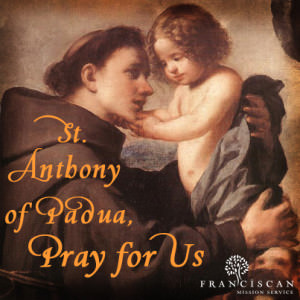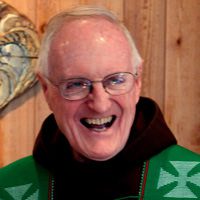St. Anthony of Padua, Friend of the Poor

One of the most recognizable and popular saints of the Church after Francis of Assisi, St. Anthony of Padua, has captured the imagination of generations for being the “finder of lost items. And with some reason: how often after a saying a prayer to him in desperation we’ve “looked again” for a misplaced set of keys, or wallet, or cell phone and lo and behold…
This saint, however, brings so much more than these somewhat folkloric experiences to the pantheon of the canonized. Originally a member of the Augustinian Order, this 13th Century native of Lisbon, Portugal applied for admittance to the fledgling Franciscan brotherhood after seeing early followers of St. Francis depart as missioners to Morocco.
Anthony’s Franciscan life began with a modest ministry, caring for his infirm brothers in a hospice at Monte Paolo, Italy. However, on one important religious occasion the invited preacher failed to show and Anthony was asked to extemporize. So convincing was his message that eventually St. Francis himself authorized the young friar to preach and teach theology in the Order.
His preaching ministry then spread throughout all of Italy, accompanied by miracles, the legend goes, so that he became known as the “Wonder Worker.” Anthony’s sermons integrated a spiritual message with challenges to the social sins of the day: greed, tyranny of the powerful and the failings of the clergy. It is said that one day he addressed an errant archbishop with the words, “You there with the mitre.” So successful were his exhortations to charity that Anthony also became known as “Friend of the Poor”.
Unfortunately the saint wore himself out in carrying on this preaching mission and died at the young age of 36. The date was June 13, 1231, now the month and day each year when we celebrate this remarkable Franciscan. He was buried in Padua, where he has spent the last years of his life – hence his popular designation “St. Anthony of Padua.” His canonization, amazingly, followed only one year after his death and in 1946 Pope Pius XII declared him a Doctor of the Church.
To know something of the full story of this “finder of lost items” reminds us that all the saints lived active human lives. They are not some breed of human beings that we turn to for trivial needs but women and men like ourselves who struggled to remain faithful in their vocations, as we do.
Perhaps the next time we breathe a frustrated prayer to St. Anthony as we seek something we’ve lost, it will occur to us that this saint merits our admiration and imitation for the totality of his life on earth.
Toady’s post was written by guest blogger, Fr. Joe Nangle, OFM, FMS’ former executive director and board secretary/treasurer.
Tagged in:


